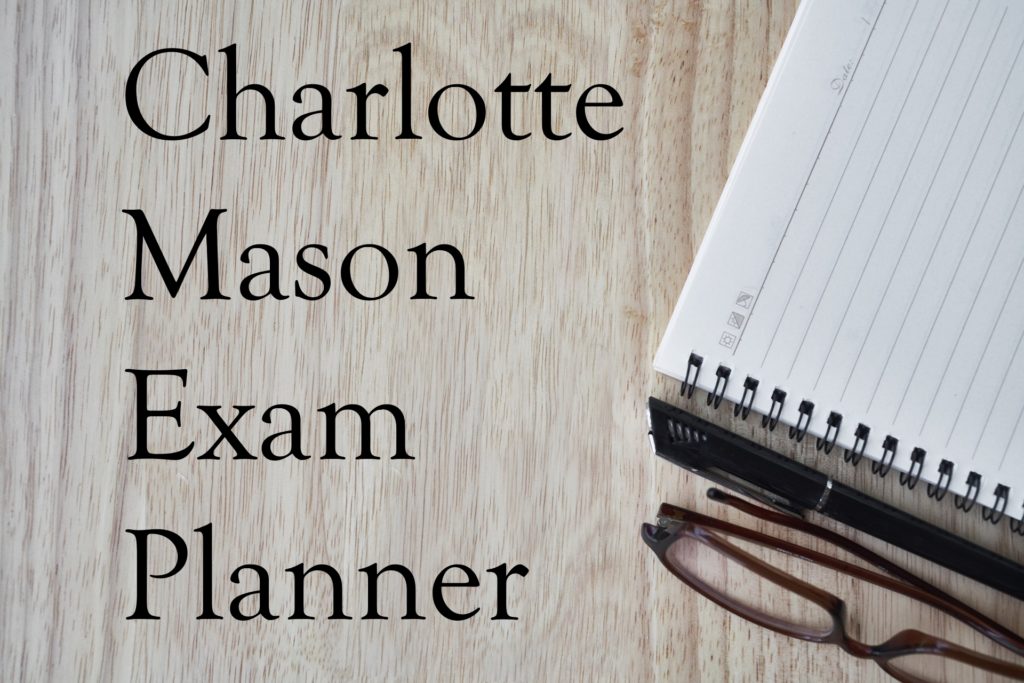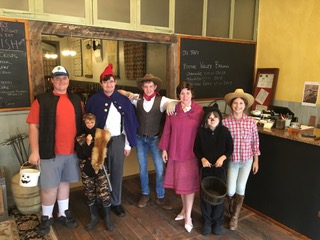
Living ideas flow from the living books Charlotte Mason assigned for school lessons and life lessons. This episode examines the purpose for the selection of literature for those after-school hours, and how to encourage this life-giving reading habit.
Listen Now:

“People are naturally divided into those who read and think and those who do not read or think; and the business of schools is to see that all their scholars shall belong to the former class; it is worth while to remember that thinking is inseparable from reading which is concerned with the content of a passage and not merely with the printed matter.” (6/31)
“From one to two hours, according to age and [form], are given in the afternoons to handicrafts, field-work, drawing, etc.; and the evenings are absolutely free, so that the children have leisure for hobbies, family reading, and the like.” (From “Suggestions” accompanying Programme 42)
“The evening reading is not task work. It is not important that many books should be read; but it is important that only good books should be read; and read with such ease and pleasant leisure, so that they become to the hearers so much mental property for life…One other point: it is hopeless and unnecessary to attempt to keep up with current literature. Hereafter, it may be necessary to make some struggle to keep abreast of the new books as they pour from the press; but let some of the leisure of youth be spent upon ‘standard’ authors, that have lived through, at least, twenty years of praise and blame.” (5/223)
“The evening readings should be entertaining, and not of a kind to demand severe mental effort; but the long holidays are too long for mere intellectual dawdling. Every Christmas and summer vacation should be marked by the family reading of some great work of literary renown, whether of history, or purely of belles lettres. The daily reading and discussion of one such work will give meaning and coherence to the history ‘grind’ of the school, will keep up a state of mental activity and will add zest to the general play and leisure of the holidays…Far better would it be that the young people should seek out their own pastures, the parents doing no more than keep a judicious eye upon their rovings. But the fact is young people are so taken up with living, that, as a rule, they do NOT read nowadays; and it is possible that a course of spoon-meat may help them over an era of feeble digestive powers, and put them in the way of finding their proper intellectual nourishment.” (5/227)
“The P.U.S. time-tables are arranged for Home Schoolrooms for the hours of morning school only. [The lighter portions of the Literature (novel, play and poems), are read for amusement in the evenings and also in the holidays. Music, Handicrafts, Field-Work, Drawing, Nature Note Books, Century Books, are taken in the afternoons.] Elementary Schools will therefore have a wide margin for other necessary work. It is desirable that children should buy their own copies of Scott, for example, or Shakespeare–whatever may be set for reading and recitations–so that these may be read at home as well as school.” (Public Elementary Schools, PNEU Pamplet, see below)
“To attempt a list of books suitable for the family lecture would be as hopeless as it is unnecessary; but it is possible to discuss the principles on which the selection should be made. In the first place, to get information is not the object of the family reading, but to make the young people acquainted with the flavour of, to give them a taste for a real “book“––that is, roughly speaking, a work of so much literary merit, that it should be read and valued for the sake of that alone, whatever its subject-matter.
“This rule makes a clean sweep of the literature to be found in nine houses out of ten––twaddling story-books, funny or “good”; worthless novels; second-rate writing, whether in works of history or of general literature; compendiums, abstracts, short sketches of great lives, useful information in whatever form. None of these should be admitted to the evening lecture, and, indeed, the less they are read at all, the better. A good encyclopaedia is an invaluable storehouse of facts, and should be made use of to elucidate every difficulty that occurs in general reading; and information got in this way, at the moment it is wanted, is remembered but it is a mistake to read for information only.
“Next, the book must be as interesting, amusing, or pathetic, as may be, but not too profound; the young people have been grinding all day, and now they want relaxation. One is sorry for girls and boys who do not hear the Waverley Novels read at home; nothing afterwards can make up for the delight of growing up in the company of Peveril of the Peak, Meg Merrilees, Jonathan Oldbuck, the Master of Ravenswood, Caleb Baiderstone, and the rest; and every page is a training in righteous living and gentlemanlike feeling. But novels are not the only resource; well-written books of travel are always charming; and, better than anything, good biographies of interesting people; not any of the single-volume series of “Eminent” persons, but a big two-volume book that gives you time to become at home with your man.
“Important historical works had better be reserved for the holiday, but historical and literary essays by men of letters afford very delightful reading.” (5/222-23)

Children of the New Forest, Marryat
The Prince and the Page, Yonge
Tom Brown’s School Days, Hughes
Ourselves (Volume 4), Charlotte Mason
A Tree Grows in Brooklyn, Smith
The Chronicles of Narnia, Lewis (yes, they should be read in publication order)
Lord of the Rings Trilogy, Tolkien
Treasure Island and Kidnapped, Stevenson
(Contains Affiliate Links)

Maestro Classics (Use Coupon Code “PODCAST” for 17% off Sale Price)








